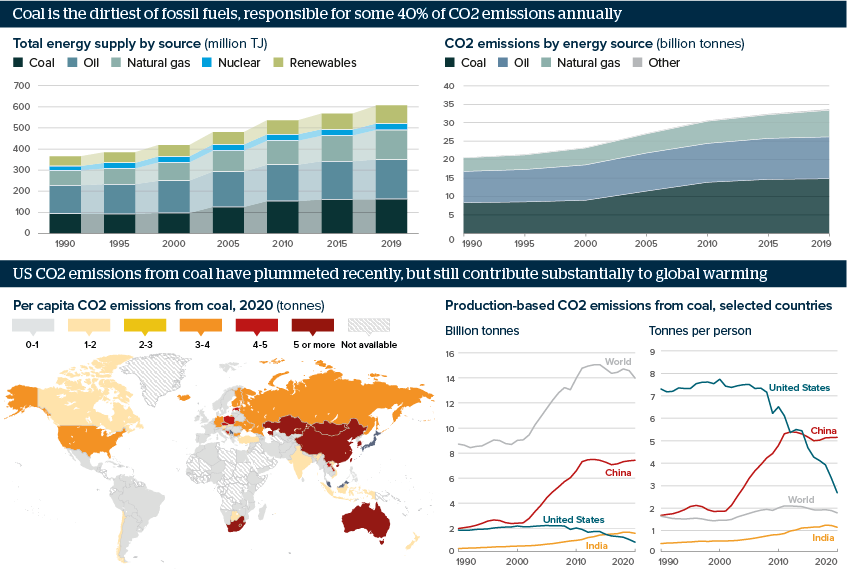Coal use will be a source of global climate tensions
The Glasgow Climate Pact is the first climate deal explicitly to address coal reduction, but that has been overshadowed
Source: EA World Energy Balances; Global Carbon Project
Outlook
A last-minute word change, secured by China and India, has seen a proposed COP26 pledge to “phase out” coal power replaced with a weaker “phase down” commitment. The move illustrates the continuing difficulties of multilateral cooperation on climate change, and the tensions between developing, coal-dependent economies and developed economies whose historical coal use has exacerbated global warming.
Wealthy nations’ continued underfunding of climate transition in the Global South risks perpetuating the use of coal and stoking resentment at perceived double standards. UN researchers project a catastrophic 2.4-degree temperature rise by 2100, so pressure will build for major revisions to national climate pledges at COP27.
Impacts
- Continued coal use will undermine efforts to reduce emissions of greenhouse gases other than CO2, such as methane.
- A promise by wealthy states to provide USD100bn a year in climate financing for poorer nations, even if met, will fall far short of needs.
- Worsening natural disasters will mainly affect the Global South, increasing humanitarian aid needs and migration pressures.
- Delays in eradicating coal will have a knock-on effect on efforts to phase out oil and gas.
See also
- Jakarta will champion developing countries in G20 role - Jan 24, 2022
- Energy transition demand will elevate aluminium prices - Dec 24, 2021
- North-South climate tensions may undermine progress - Dec 2, 2021
- Report to boost climate action calls globally - Aug 27, 2021
- More graphic analysis
